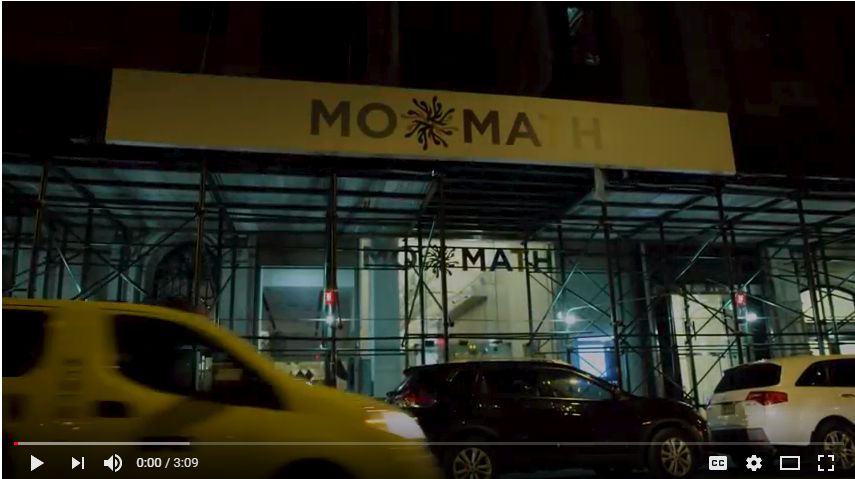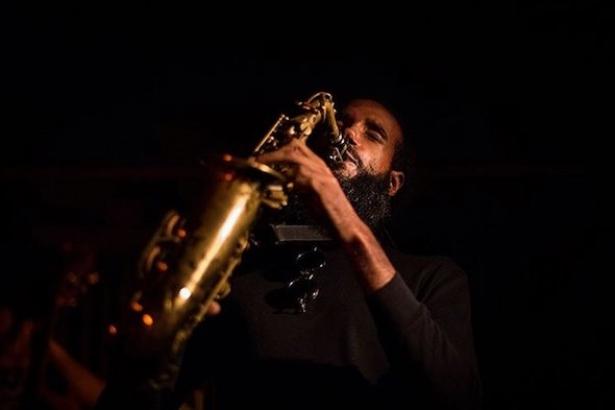Like most New Yorkers, I tend to work late. My typical evening involves leaving the stage shortly after midnight and then preparing some problems in number theory or combinatorics until about 3 or 4 AM. I am a jazz musician and mathematician. My skill set allows me to interpret musical experience through the language of mathematical structure and creative problem solving.
My practice involves using ideas of mathematical transformations on melodies, rhythms, and harmony. My compositions are developed using relationships between sound frequencies. But, to me, the notion that math and music are the same thing is both terribly poetic and also too reductionist to be useful. Still I believe the two disciplines are connected by an uncanny similarity in the roles creativity and imagination play in both.
I started learning music at nine years old and worked as a musician through my teenage years, but opted to attend a university instead of a conservatory on the advice of my music mentors who encouraged me to learn more about the world. At school, I became enamored of math because of the allure of the elegant theoretical worlds mathematicians built. Upon graduation, however, I decided to spend my twenties back on stage rather than in a graduate school library. Still, I continued reading math texts, as well as tutoring high school and college students, whenever I wasn't touring around the world.
The uses of math in music are legion. You can find math the construction of modern harmony and counterpoint, development of rhythms, and the proportioning of arrangements. What I would like to see further explored, are the commonalities between the subjective experiences of doing math and music. Although the lifestyles of mathematicians and musicians might seem worlds apart, at least for me, the “thought work” behind them are more closely related than you might think: the magic of engaging with math and music fundamentally changes the way you imagine and create.
Credit: Dan Robinson
Much of this “thought work” can be summarized as first creating, in the senses (and perhaps on a whiteboard or an instrument), a representation of an idea, and then imagining it transformed in creative and useful ways. Developing the representation is thus a form of self discovery, while transforming it is a kind of play. Can you spot the inference to be made here? It deeply informs my life and I would love to see it become more present in our culture:
Math can be experienced as play in much the same way music is.

Click here to view this video with Marcus Miller at National Museum of Mathematics
Let me explain. To improvise or compose one must learn the technique of the instrument and the harmonic and rhythmic language of music. All the while, the fun comes in imagining and experimenting with the technical and linguistic components one has incorporated, in order to invoke a sensation, express an emotion, or tell a story. As the mastery of both the instrument and the underlying language expand, the mind becomes more sensitive to different ideas while the body becomes more competent at putting those ideas in practice. The process thus expands naturally from creative absorption to transformation, and eventually to execution.
Math can work similarly. A student must become adept with numbers and other symbols, various rules of algebra and calculus to manipulate symbols, and several functions. This is the language of mathematics; its grammar, and its technique. Mathematical problems can be viewed as structured opportunities to play with what is already known in order to discover what is not.
Through this process, a mathematician begins to develop a sense of the nature of mathematical ideas and their logical interrelationships, thus becoming sensitive to new ideas while becoming better equipped to manipulate them internally. To think of math as just formulas memorized through rote learning and mechanical thoughtless symbol shunting tragically misses the point.
Credit: Leo Sorel
As with music, everyone incorporates the underlying language, grammar and technique in their senses differently, and thus comes to their own individual understanding that leads them to express ideas in their own unique way. Contrary to the trope of the socially dysfunctional lone genius, mathematicians collaborate for most of their work, which makes them in some sense much like musicians. Expressing our internal worlds through pictures, words, and symbols and sharing them with one another, riffing off of each other’s ideas is how much of modern mathematics is done.
What if the world understood math in this way? What if we educated with the idea of playing with numbers in order to master arithmetic the same way improvising musicians are taught to play with musical notes to learn their scales? What if we honored the unique way that people understand and taught from that space rather than by rote? What if we refined people’s logical aesthetics to the point that mathematics felt more personal, more artsy, and the profound experiences of mathematical “beauty,” “elegance” or “risk” weren’t reserved for an intellectual elite?
Math as self-discovery, math as play. These two ideas may seem foreign at first, but I am convinced this change in paradigm is exactly what’s needed in order to enlarge the tribe of creative problem solvers in mathematics and many other human disciplines—equipping them to “jam” on the world’s toughest challenges.
Marcus Miller is Co-Founder of Math+Music, as well as moderator and performer at it's bi-monthly "Quadrivium Series," currently hosted at the National Museum of Mathematics. Find out more about his work at marcustheartyst.com and stay updated by following him at @marcustheartyst and @mathplusmusic. Tickets for the upcoming Quadrivium "Symmetry" event Friday, April 20th available at quadrivium.momath.org


Spread the word